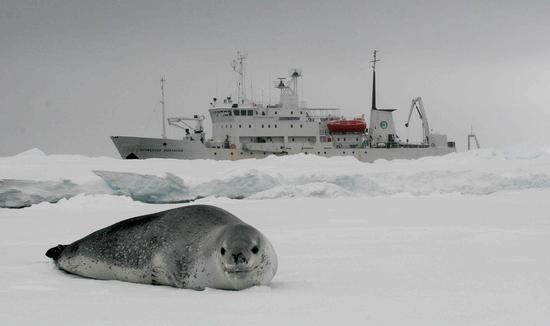| Projects / Conservation Actions |
|
Higher predators – long term science The British Antarctic Survey carries out long term science that measures changes in Antarctic ecosystems and seeks to understand the underlying drivers and processes. Marine predators are sensitive to changes in the ecosystem, some of which are natural (such as climate variability), whereas others are caused by humans (e.g. fishing). Monitoring breeding populations of seabirds and seals is therefore an important part of the BAS LTS programme, providing scientists and conservationists with indicators of wider changes in the Scotia Sea and elsewhere in the south-west Atlantic. These indicators include estimates of population size and trends, breeding frequency, reproductive success, and the composition of predator diets. |

|
Top predator, leopard seal, rests on a floe - with Oceanwide expedition vessel Professor Molchanov behind.
© Dr Mike Pienkowski
(Projects / Conservation Actions, 4 of 8 - Slide ref. 1334) |

UK OVERSEAS TERRITORIES CONSERVATION FORUM
Virtual Tours: British Antarctic Territory